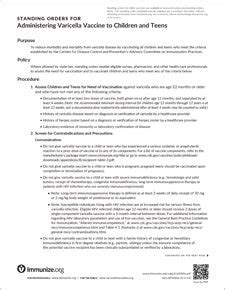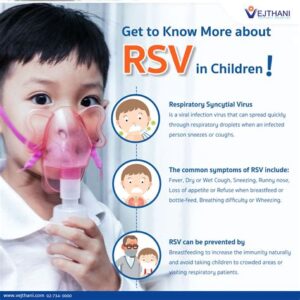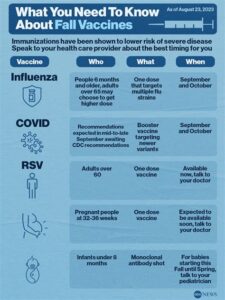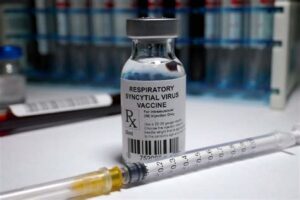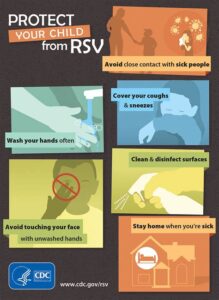Learn about RSV vaccination, its benefits, eligible recipients, cost, and insurance coverage, plus find locations for getting the vaccine. Protect your health!As respiratory syncytial virus (RSV) poses a significant health risk, particularly for infants, the elderly, and individuals with compromised immune systems, the availability of an effective vaccine is essential for public health. In this blog post, we will explore the RSV vaccine, shedding light on its importance and the various locations where you can access it. We’ll also discuss the numerous benefits of vaccination, who should prioritize getting the RSV vaccine, and the financial aspects, including costs and insurance coverage. Whether you’re a parent of a young child or seeking information for yourself or loved ones, understanding where and why to get vaccinated against RSV can empower you to make informed health decisions. Let’s dive in!
Understanding RSV Vaccine
Respiratory Syncytial Virus (RSV) is a common virus that can cause serious respiratory infections, particularly in infants, young children, and older adults. This virus is highly contagious and can lead to bronchiolitis and pneumonia, making prevention essential. The recently developed RSV vaccine aims to protect those at high risk from the severe effects of this virus.
The RSV vaccine works by stimulating the immune system to recognize and fight against the virus. It is especially important for infants and toddlers, as they are more susceptible to severe illness from RSV. Immunizing pregnant women can also provide protection to newborns during the first months of life, as maternal antibodies transfer immunity to the baby.
As the RSV vaccine becomes widely available, health officials encourage individuals to consult healthcare providers to discuss eligibility. It’s vital to stay informed about the vaccine’s availability and recommendations, par
Locations for RSV Vaccine
When looking to receive the RSV vaccine, it’s essential to know the various locations where it is available. Different facilities are equipped to administer these vaccinations, ensuring access for individuals across different regions.
- Hospitals: Major hospitals often have vaccination clinics where you can receive an RSV vaccine. Check the hospital’s website or call ahead to confirm.
- Community Health Centers: Local health centers frequently offer vaccines, including the RSV vaccine, especially during flu season.
- Pharmacies: Many public pharmacies are equipped to provide vaccinations, making it a convenient option for those with busy schedules.
- Pediatrician’s Offices: If the vaccine is recommended for children, pediatricians will typically have it on hand and can guide you through the vaccination process.
It’s important to consult with a healthcare provider to determine the most appropriate location based on your individual needs and circumstances. Always call ahead to ensure that the location you choose has the RSV vaccine available.
Be proactive in protecting yourself and your loved ones by seeking out these vaccination locations as soon as they become available.
Benefits of RSV Vaccination
Respiratory Syncytial Virus (RSV) is a leading cause of respiratory infections in infants and young children. Vaccination against RSV offers numerous benefits, which can significantly improve health outcomes for vulnerable populations. Understanding these benefits can help parents and caregivers make informed health decisions regarding their loved ones.
One of the primary benefits of the RSV vaccine is its ability to prevent severe respiratory illness. RSV can lead to serious conditions, such as bronchiolitis and pneumonia, especially in infants under 12 months of age. Vaccination significantly reduces the incidence of such complications, ensuring that infants are less likely to experience hospitalization and other serious health issues.
In addition to personal health, the benefits of RSV vaccination extend to public health by reducing the overall transmission of the virus within communities. When more individuals are vaccinated, the likelihood of outbreaks diminishes, contributing to the protection of those who are unable to receive the vaccine, such as infants who are too young or individuals with certain medical conditions.
Furthermore, receiving the RSV vaccine can lead to reduced healthcare costs for families and health systems. With fewer instances of severe RSV infections and related hospitalizations, the financial b
Who Should Get RSV Vaccine
The RSV vaccine is an essential preventive measure designed to protect vulnerable populations from Respiratory Syncytial Virus (RSV). Understanding who should receive this vaccine is critical for public health.
| Group | Description |
|---|---|
| Infants and Young Children | Babies, especially those born prematurely or who have underlying health conditions, are at a higher risk of severe RSV infection. Vaccination is recommended in infants during RSV season. |
| Older Adults | Adults aged 65 and older are at increased risk for severe RSV disease. Vaccination can help reduce their risk and protect their health. |
| Individuals with Compromised Immune Systems | People with weakened immune systems due to medical conditions or treatments are at higher risk for complications from RSV. It’s important for them to be vaccinated. |
In addition to the aforementioned groups, healthcare providers recommend vaccination for anyone with chronic lung diseases or congenital heart conditions. These individuals often face severe risks if infected with RSV, making the vaccination crucial.
Although RSV vaccination provides significant protection, it’s equally important for those in close contact with at-risk individuals—such as family members and caregivers—to also consider vaccination. This can help to create a protective shield around the vulnerable populations.
If you’re unsure whether the RSV vaccine is right for you or someone you care about, consult with a healthcare provider to discuss risks and benefits tailored to specific health situations.
Cost and Insurance Coverage for RSV Vaccine
The cost of the RSV vaccine can vary significantly depending on various factors, including the location, healthcare provider, and the individual’s insurance coverage. Typically, the price for a vaccine dose ranges from $150 to $300. However, many healthcare facilities might charge different rates, so it’s prudent to check ahead.
In the United States, the Affordable Care Act mandates that health insurance plans cover certain vaccinations without cost-sharing. This means that if you have insurance, your plan may cover the full cost of the RSV vaccine. It is essential to confirm with your insurance provider regarding the specifics of your coverage, including any co-pays or deductibles that may apply.
For individuals who do not have insurance, federal and state programs are available to help offset the costs of vaccinations. Programs such as the Vaccines for Children Program (VFC) provide vaccines at no cost for eligible children. Additionally, some healthcare providers might offer payment plans or sliding scale fees based on income, wh
Frequently Asked Questions
What is RSV and why is the vaccine important?
RSV stands for respiratory syncytial virus, which can cause severe respiratory infections, especially in infants and the elderly. The vaccine is crucial as it helps prevent these infections, reducing the risk of hospitalization and complications.
Who is eligible to receive the RSV vaccine?
The RSV vaccine is primarily recommended for infants, young children, and older adults, particularly those with underlying health conditions. It’s essential to consult with a healthcare provider for individual eligibility.
Where can I find locations that offer the RSV vaccine?
You can find RSV vaccine locations at local health departments, pediatrician offices, hospitals, and some pharmacies. Additionally, you can visit your state’s health department website for more specific information.
Is the RSV vaccine covered by insurance?
Many insurance plans cover the RSV vaccine, particularly for high-risk groups like infants and the elderly. It’s advised to check with your insurance provider for specific coverage details.
What are the side effects of the RSV vaccine?
Common side effects of the RSV vaccine may include mild fever, soreness at the injection site, or fatigue. Serious side effects are rare, but it’s important to discuss potential reactions with your healthcare provider.
When is the best time to get vaccinated for RSV?
The best time to get vaccinated for RSV is typically in the fall before the winter season when RSV infections peak. However, it’s recommended to consult with your healthcare provider for personalized timing.
Can adults receive the RSV vaccine?
Yes, adults, particularly those over 60 and those with certain health conditions, may receive the RSV vaccine. Consulting with a healthcare provider is essential to determine if it’s appropriate for you.

